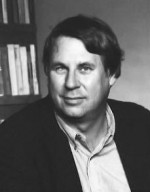Professor revisits freedom riders in book and lectures

Civil rights author and historian Raymond Arsenault is the John Hope Franklin Professor of Southern History and co-director of the Florida Studies Program at USF St. Petersburg. Last year, Arsenault published Freedom Riders: 1961 and the Struggle for Racial Justice, a book from Oxford University Press about a pivotal moment in the civil rights movement.
Oracle: What made you decide to write a book about the Freedom Rides of 1961?
Raymond Arsenault: The story of the Freedom Riders is one of the most important episodes of the modern civil rights movement in the United States, but it’s also one of the few that has never had its own book. [Oxford Press] asked me to do a book in the series on a topic of my choice. I’ve always wanted to write about the Freedom Rides of 1961. As a kid, and for most of my life, I’d always been intrigued by this story of more than 400 young Americans – black, white, male, female, Northern, Southern – who put their bodies on the line to insist that buses, trains and terminals be desegregated.
O: What intrigued you about the Freedom Riders?
RA: They were trying to make a point about racial equality and racial justice and weren’t willing to wait for the political system or judicial system to grind away slowly at the issue. They took the issue out of the courtroom and into the streets, literally. Many wrote out their wills and got on these buses, and most thought they would never come back. They tried to force the Kennedy Administration to acknowledge that people – anyone – could sit where they wanted to on a bus. Some of the Riders ended up in prison. Ultimately they forced the Kennedy Administration to enact laws calling for a sweeping desegregation of buses and public transportation. It was the first substantial movement toward desegregation in America.
O: What did you hope to accomplish through publishing your book?
RA: Mostly, I wanted to make sure that the American public and other historians knew this story, because it’s an important one to tell.
O: Are you still working on other Freedom Rider projects?
RA: I’ve lectured all over the country, and sometimes in England, about the Freedom Riders. I talked to about 200 of 436 Riders to retrieve oral history, so I got to know the Freedom Riders. Because of this, I often have the pleasure of lecturing with some of the Freedom Riders, either interacting or sitting on stage with me.
O: You’ve donated a collection to the Nelson Poynter Library at USF St. Petersburg. What kind of works did you donate?
RA: Over the years I guess I have donated some things. I did a book on St. Petersburg and gave some of the research materials, and some materials – related largely to the African-American history – related to the community here. It wasn’t a large amount, but I have been collecting some things. Mostly Xeroxes and photographs about the history of St. Pete in general, and particularly the African-American community.
O: How do you think America has progressed with civil rights since the civil rights movement?
RA: I think it’s a bittersweet story. Obviously important strides have been made; no one, I think, would contemplate having separate drinking fountains for blacks and whites, or fostering the cradle-to-grave segregation of the 1960s. But the need for deeper revelation in the human heart to rid ourselves of prejudice has not gone away to the extent we thought they would. The Freedom Riders talked about a “beloved” community. Sadly, it has not come to pass. Maybe it will, but there seems to be a lot of work left to be done, particularly in areas of economic justice.
Also, I think there is a need for getting to know each other by living in the same neighborhoods, attending the same schools and churches and being part of the same families. There are still a lot of subtle forms of inequality that persist and bedevil us – they are more difficult to tackle because they aren’t so obvious. These are the inequalities that are difficult to address and get people to pay attention to.
Jaclyn DeVore can be reached at (813) 974-6299 or oracledevore@gmail.com.






